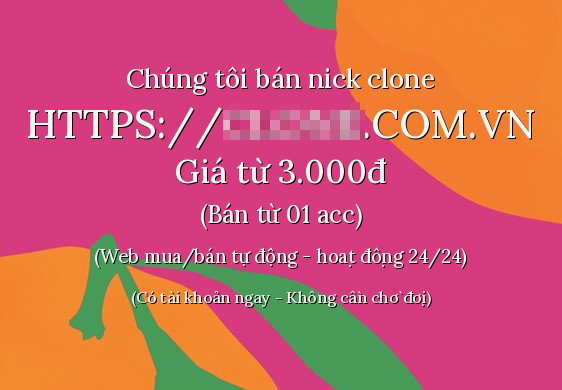When searching Google with key words ‘lua dao tren Facebook’ (phishing on Facebook), 16 million results appear.

In many cases, the accounts of celebrities with blue verified checks are hijacked by hackers to deceive people.
The tricks used by scammers are becoming increasingly sophisticated.
Social networks are not e-commerce sites and are not registered with the Ministry of Industry and Trade (MOIT), so they don’t serve as businesses that sell products. The origin of products displayed is unclear.
Social network users are advised not to buy items on social networks from strange people, no matter who they are or how famous.
If users want to buy something, they need to find out the real value of the products and only make payment when getting delivery and checking the product.
| Social networks, including Facebook, have become the ideal environment for cybercriminals to seek profits by phishing. |
In many cases, scammers require payment of 50 percent in advance as they understand that buyers like branded goods at reasonable prices.
If sellers say they are officers of companies, buyers should only transfer money into the accounts of the companies after being sure that the tax codes of the companies are still active.
They need to be sure that the business fields of the companies coincide with the products sold and must be licensed by appropriate agencies.
In cyberspace, anyone can be hit by scammers. In many cases, the accounts of celebrities with blue verified checks are hijacked by hackers to deceive people.
Scammers can impersonate policemen, prosecutors, bankers, public officials and foreigners to swindle people. They may even disguise themselves as customer care officers or Facebook officers so they can do phishing.
They may try to persuade buyers by introducing intermediaries who they say have bought products. And when buyers finish the money transfer, scammers will quickly run away. There are no intermediaries who actually bought the products. All were just virtual.
Scammers tell social network users that they offer gifts but ask users to pay the shipping fee of no more than VND100,000. But the gifts users receive don’t have any value.
Instructions on social media for people to follow, from accepting gifts to doing something, can be scams. There is no gift from the sky, and there is no Facebook officer who guides what people should or shouldn’t do.
Users are told not to log in or enter personal information, or their secret information could be exposed to hackers.
Phuong Nguyen

Facebook accounts vulnerable to Vietnamese hackers
The account of the former footballer Ivanovic has been appropriated by Vietnamese hackers, raising concern about the security of Facebook accounts.

VN social networking sites shaken by draft amendment
More than 500 local social networking sites will need to secure a permit to continue earning revenue if the draft decree amending Decree 72 is approved.
